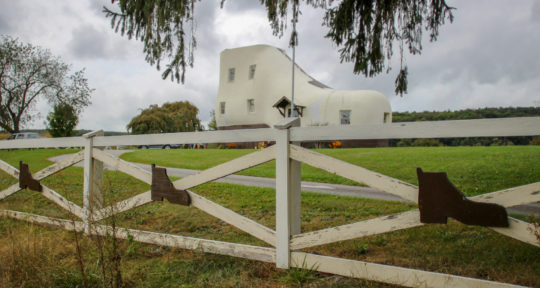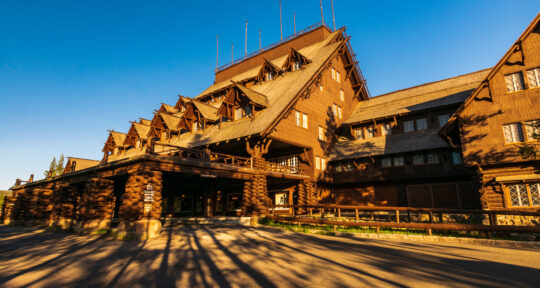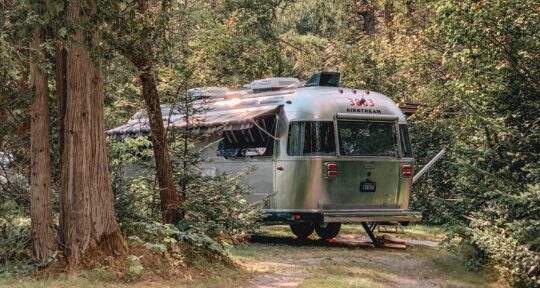In the early 1980s, Debbie and Bob Altizer were tired of their city life. Not wanting to stray too far from Bob’s parents, the Altizers drew a circle around where they lived in Washington, D.C., and started driving. They searched for a business that would allow them the freedom, space, and solitude they felt they were missing. Two and a half hours northwest, located along U.S. Route 30 in south central Pennsylvania, they found it: the Lincoln Motor Court.
“We were young and stupid and we bought it overnight,” Bob says. “We didn’t know anything about the hospitality industry, we had no idea that the Lincoln Highway was historic—we were just young and dumb.”
“We didn’t know anything about life yet,” Debbie adds.
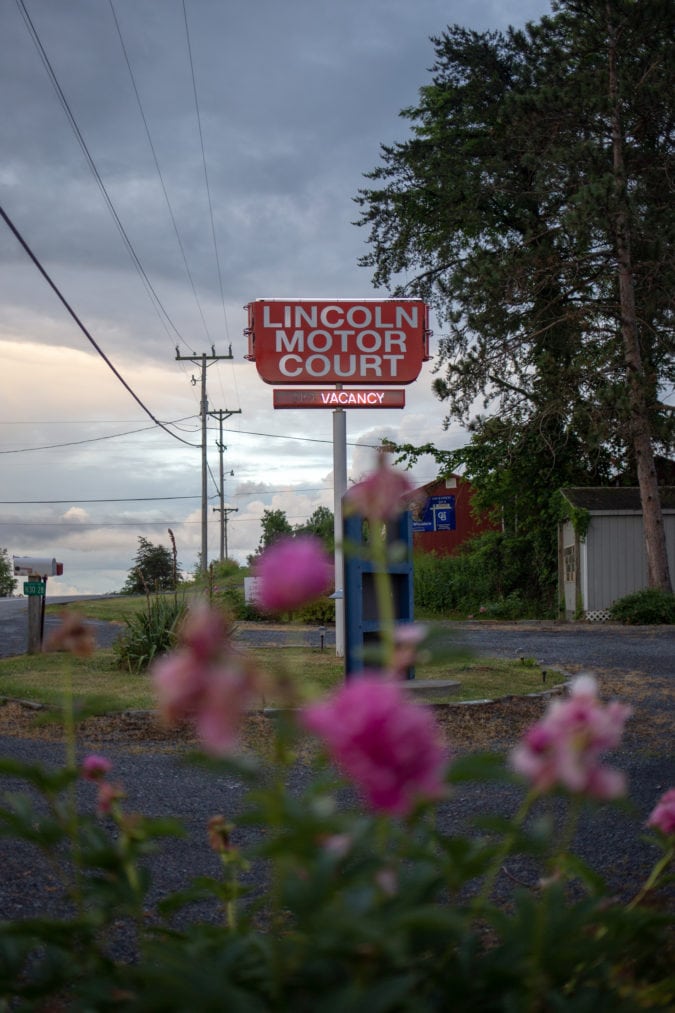
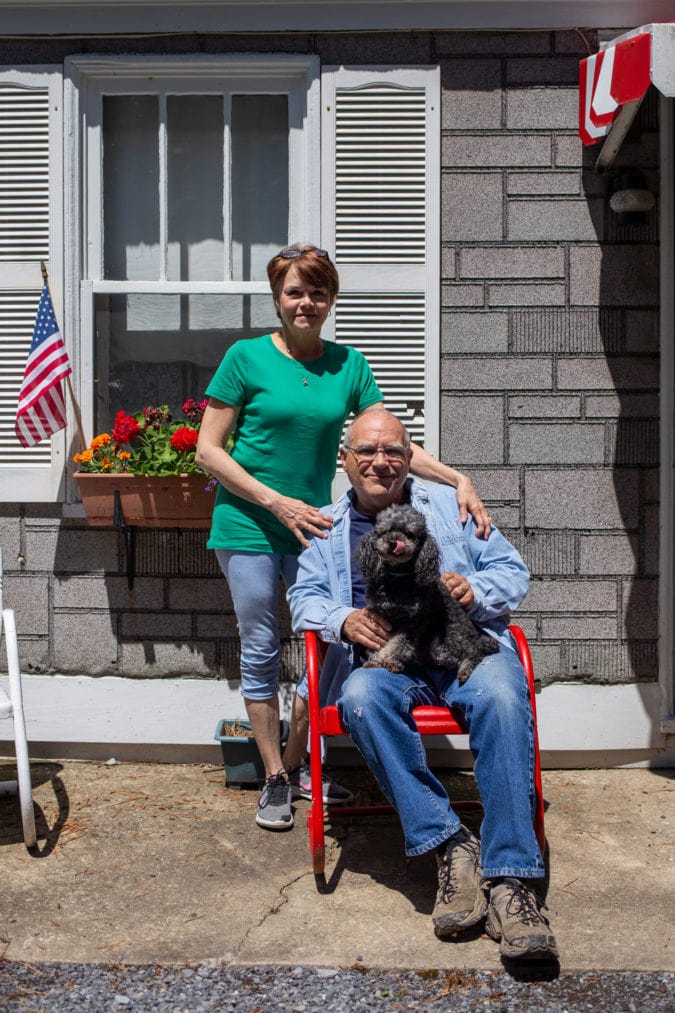
The motor court concept—comprising 12 small, free-standing cabins surrounding a slightly larger central house—pre-dates the motels and hotels familiar to anyone traveling in the U.S. today. When the Altizers decided to put down roots in Bedford County, there were still at least a dozen other motor courts in operation nearby. Today, the Lincoln Motor Court is the last one on the Lincoln Highway still open for overnight guests, and one of the last surviving motor courts in the entire country.
But in the wake of COVID-19 restrictions, businesses that may have once seemed quaint and outdated—drive-in theaters, carside food service, and motor courts—now may be uniquely positioned to make a comeback.
Key tags and light switches
I check into the Lincoln Motor Court on a Friday evening in late June. I’m on my way from Ohio to Washington, D.C., and Bedford County is located almost directly at the midpoint of my six-hour journey. Bob greets me from behind a pandemic-appropriate plastic partition and slides my room key through a small opening. The old fashioned metal key is attached to a plastic tag; it’s worn from years of use, but the “Drop in any mailbox, we guarantee postage” stamp is still visible.
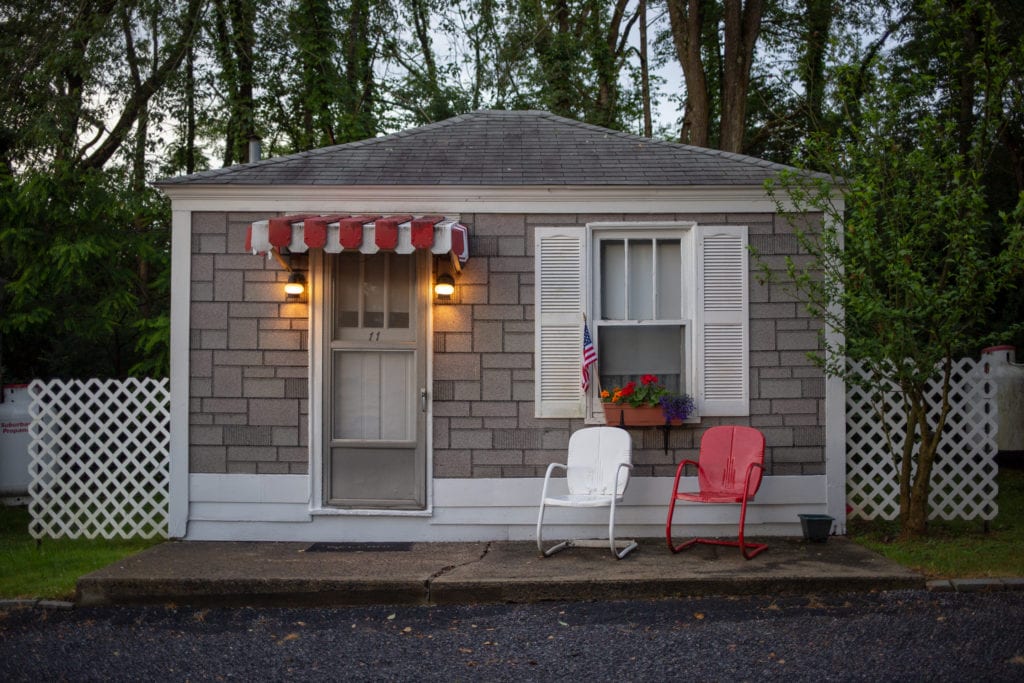
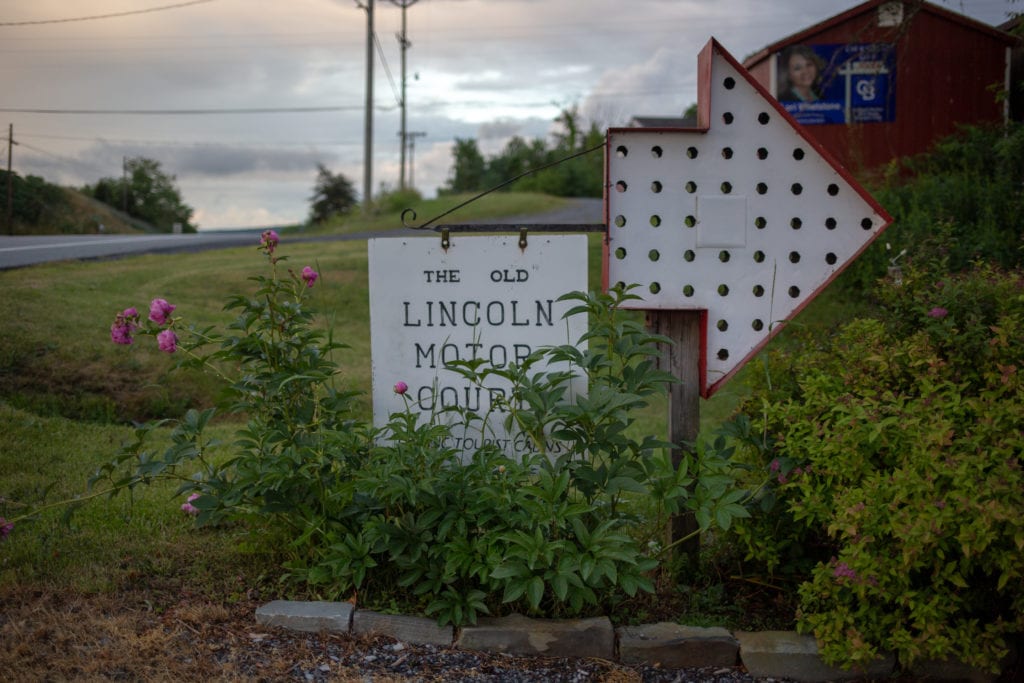
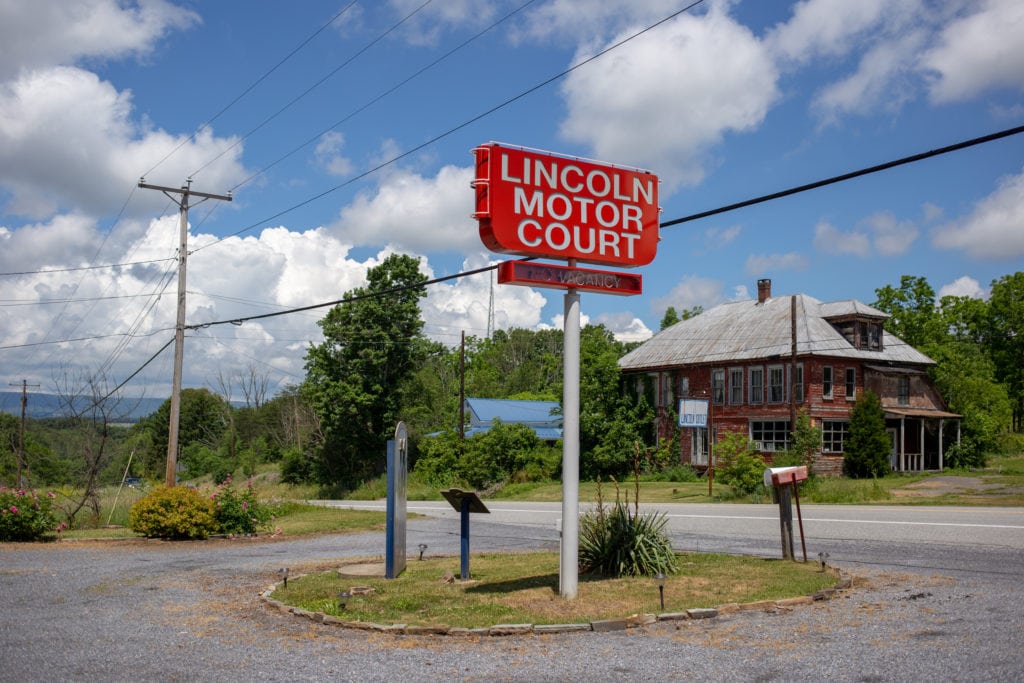
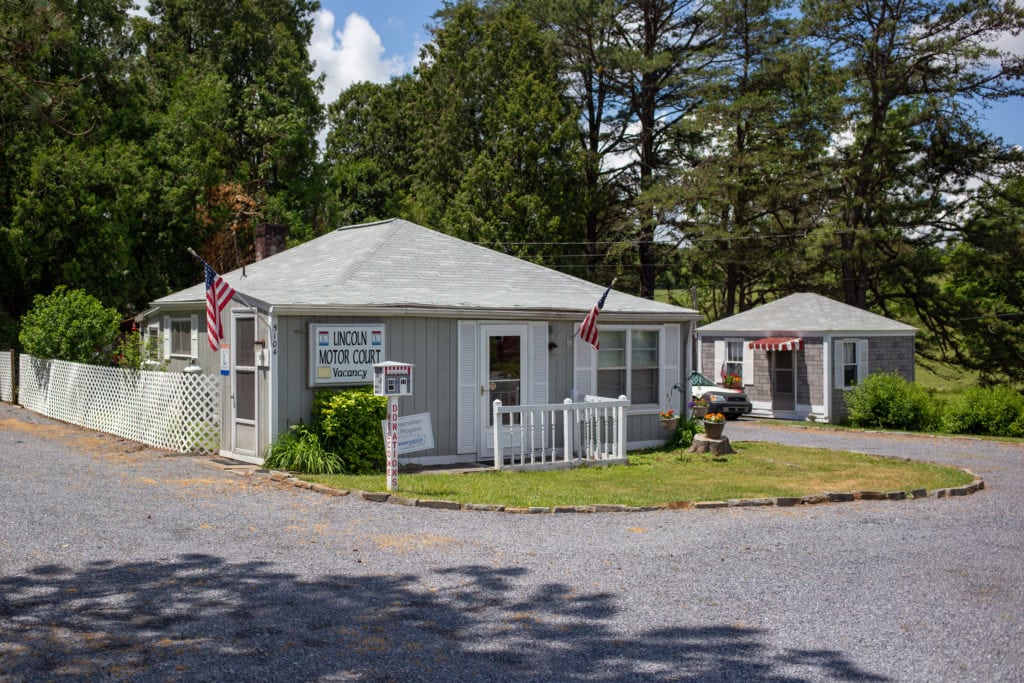
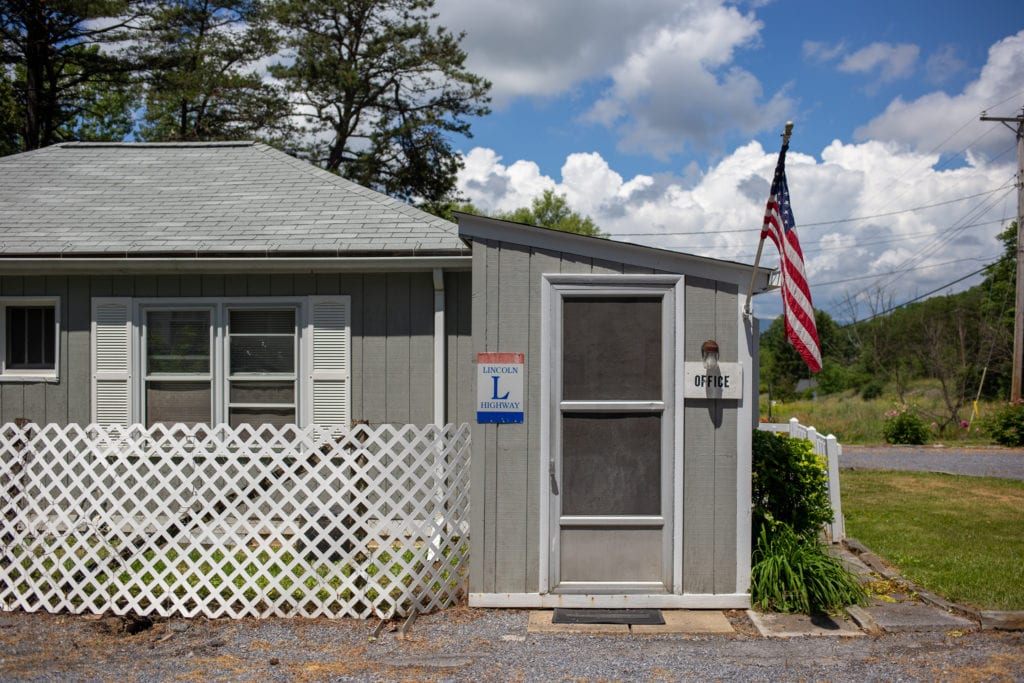
Built in 1940, during an era that Bob dubs “the heyday of motor courts,” the Lincoln Motor Court wasn’t the very first motor court in the country, but it might just end up being the last. In the early 1900s, as automobile travel became increasingly affordable and popular, roads improved, people drove farther, and the need for overnight lodging increased. Farmers turned portions of their fields into campgrounds, and some built small cabins—sometimes called tourist homes—to house travelers.
Although the terms “motel” and “motor court” are often used interchangeably, the former was coined in 1925 (a combination of “motor” and “hotel”) and is generally used to describe a single building of connected rooms whose doors face a common parking lot. There are cost advantages to connecting the rooms; plumbing is more accessible, utilities are more efficient, and there are fewer outside walls to maintain. But decades before the internet, people discovered new technologies and products by visiting a World’s Fair—or by staying at a motor court.
“A lot of people experienced their ‘firsts’ in a motor court,” Bob says. “The rooms often featured cutting-edge innovations such as linoleum flooring, wall-to-wall carpeting, box spring mattresses, electricity, plumbing, and central heat.”
Bob says that several times a week people pull in and ask for a tour, which the Altizers are happy to provide. A woman in her 90s, draped in fur and driving a Cadillac, once stopped to ask if she could look into cabin number six. “She had stayed here for her honeymoon, right before her husband went to fight in World War II,” Bob says. “She just wanted to remember.”
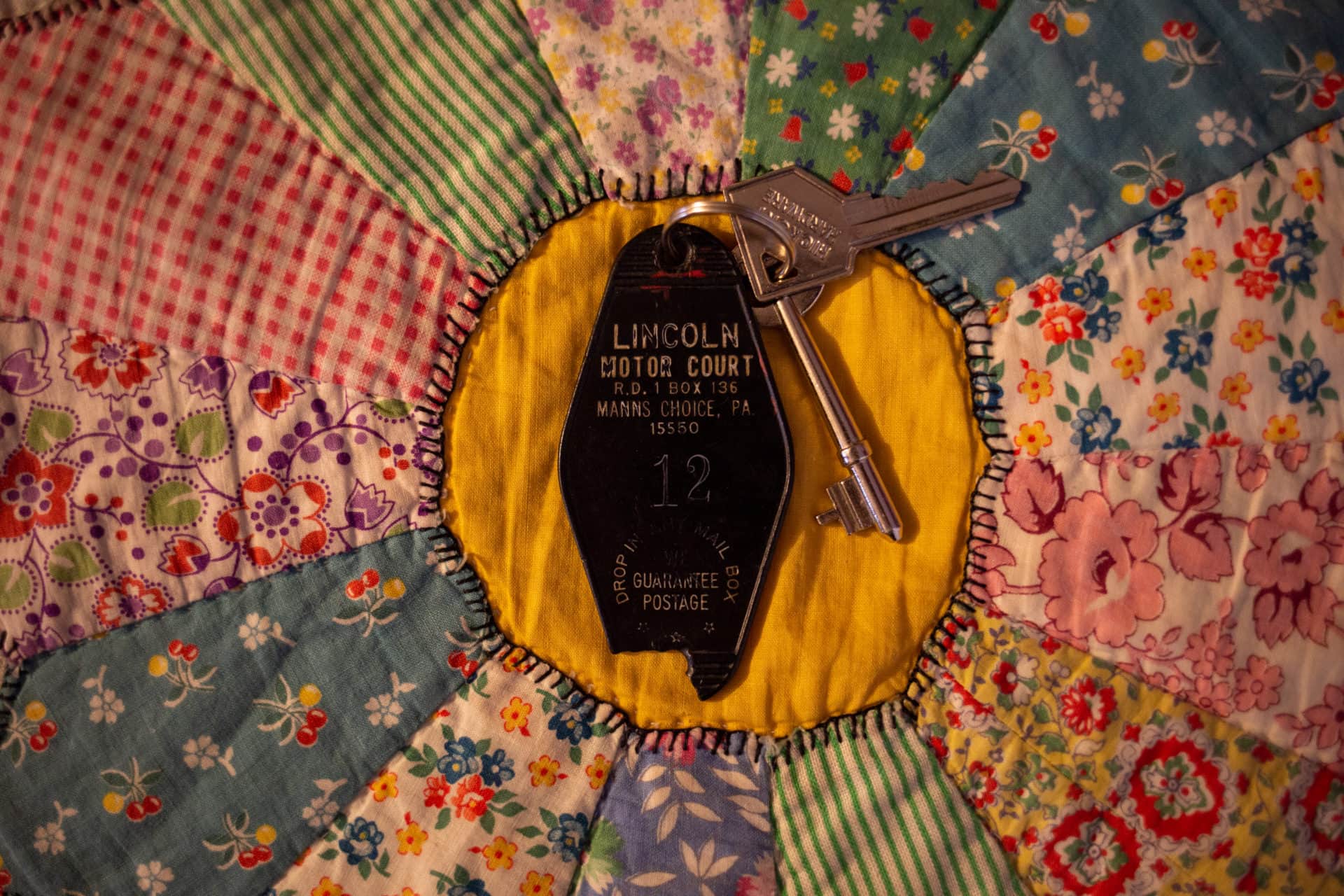
Fleabag motel
In 1983, the Altizers were eager to forget; two weeks after they closed on the 3.5-acre property, they finished their shifts at the bar they both worked at in Georgetown, locked up, pushed the key back under the door, and never looked back. “We didn’t tell a soul where we were going,” Debbie says. “We cut off ties with everyone because we knew some pretty shady characters—and moved up here.”
When they arrived, the motor court had seen its own share of shady characters through the years. They were told that the previous owner would go to the local bar and hand out keys for the night, Debbie says. “We were just a fleabag motel—and boy was I ready to get out of here within a couple of years. We had to live that bad reputation down. People wouldn’t talk to us until we had children in school. They would say, ‘You own that dirtball place?’”
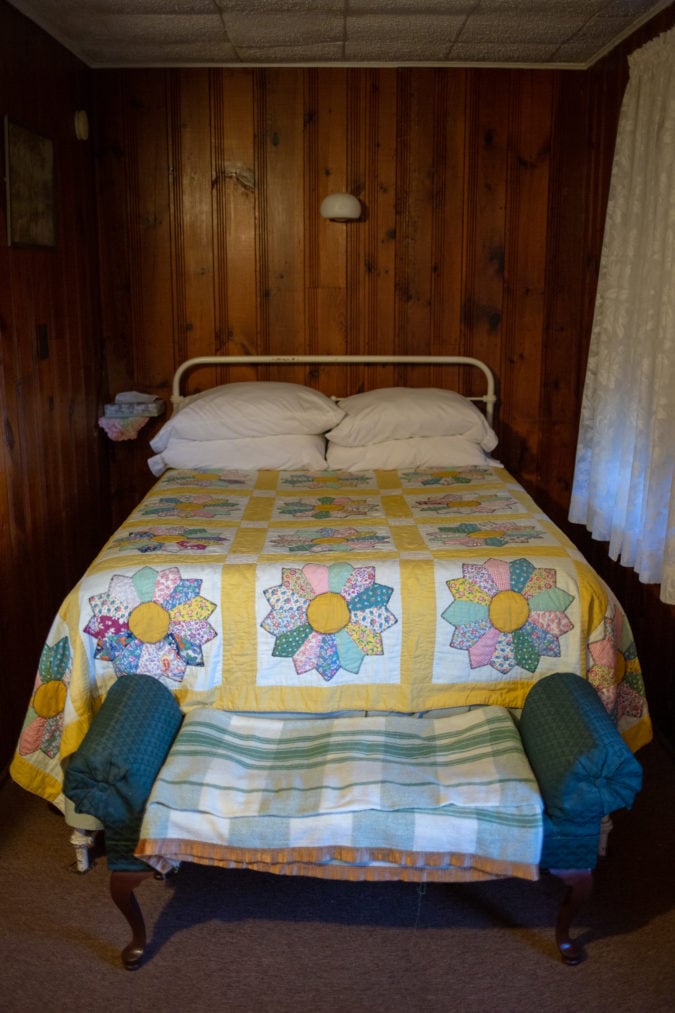
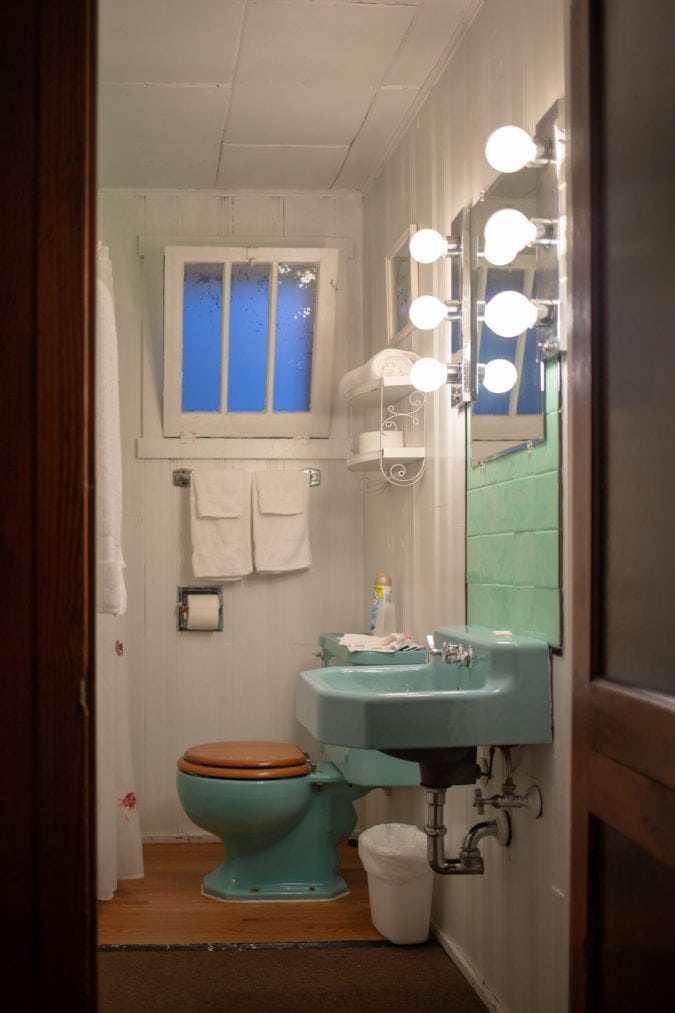
That began to change in the early ‘90s when the resurrected Lincoln Highway Association gathered for a meeting in the Altizers’ front yard. The motor court—and its charismatic owners—started receiving more recognition in local, and then national, newspapers. “We’re probably the poorest famous people you’ve ever known,” Bob says, laughing.
A 2008 PBS documentary about the Lincoln Highway still generates business through frequent reruns. “We know when it’s airing,” Bob says. “We’ll get a call at 11 o’clock at night from someone in Oregon asking us, ‘Are you still open?’”
Although Route 66 may get all the glory, the Lincoln Highway, established in 1913, was the nation’s first transcontinental road. Unlike the Mother Road, the Lincoln Highway truly stretched from coast to coast, starting in New York City’s Times Square and ending in San Francisco. “I’ve been on Route 66,” Bob says. “It is cool—but the Lincoln highway was first.” The Altizers also welcome a sizable amount of international visitors every year. “This is not the America they see on TV,” Bob says. “This is the real America.”
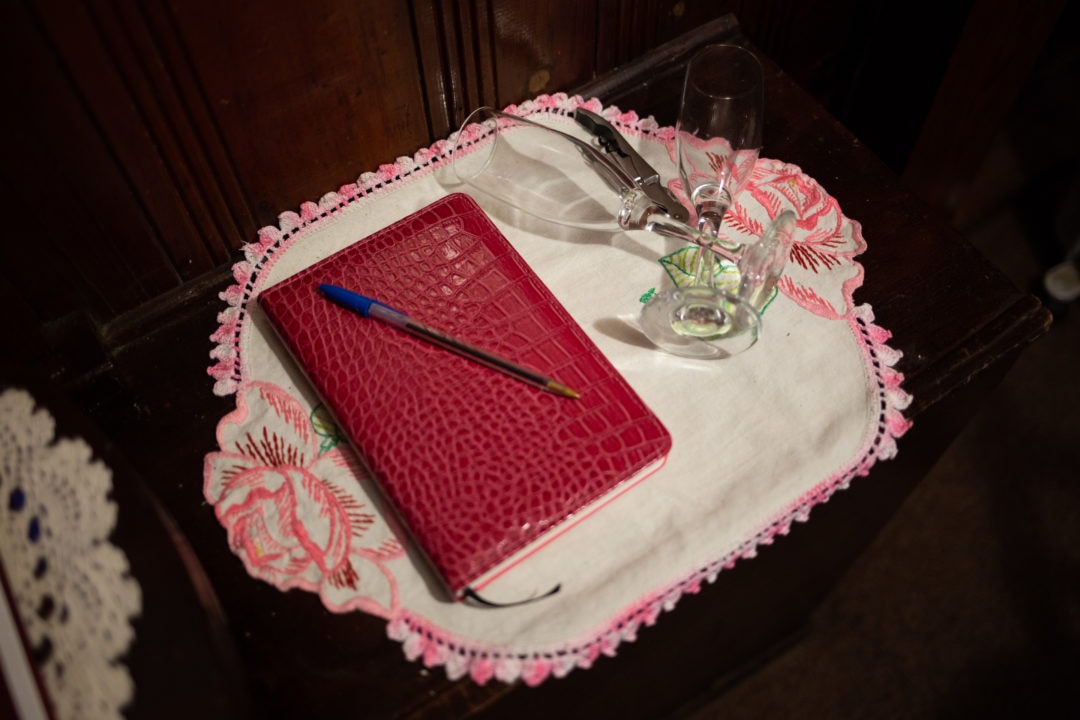
No bad reviews
Over the last four decades, the Altizers have lovingly restored and maintained the motor court; the metal chairs, light fixtures, knotty pine paneling, and plastic shower tiles are all original. The rooms are filled with period-correct furnishings sourced by Debbie from flea markets, estate sales, and generous guests. The “Sweetheart Cottage” includes champagne glasses, robes, a book titled How to Get Your Man and Keep Him, and a vintage wedding dress. “You’d be surprised at how many women rent that room and try that dress on—it’s a blast,” Debbie says.
My room, number 12, includes a 1940s-style radio preloaded with 10,000 hours of shows such as The Lone Ranger. A handmade quilt covers the bed and the table is draped with an embroidered tablecloth. Each room comes with its own guest book; mine is full of glowing reviews, which Bob says is not uncommon. “We don’t tear out pages with bad reviews—because there are none,” he says.
The outside of each cabin is covered in Insulbrick, a brand name that is commonly used to describe various types of asphalt siding. The gray fibreboard sheathing, coated with tar and a granular material, is stamped to resemble brick or stone. The once-ubiquitous material is now quite rare. “Everyone that had it covered it up,” Debbie says. “When we moved here I hated it with a passion. It’s a good thing we didn’t have enough money to cover it because I would have.”
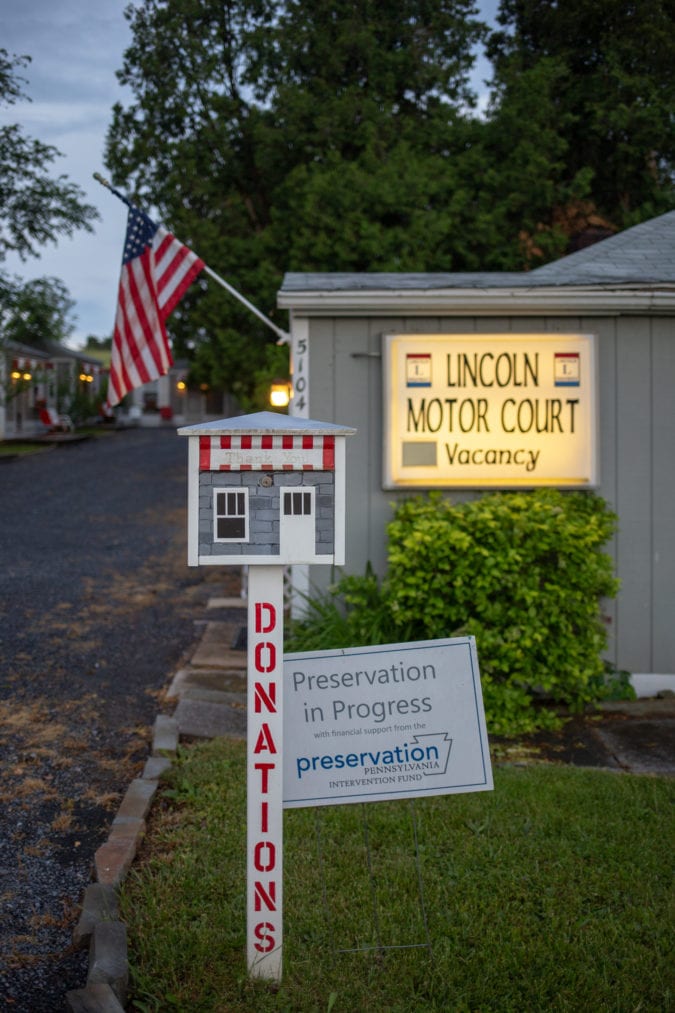
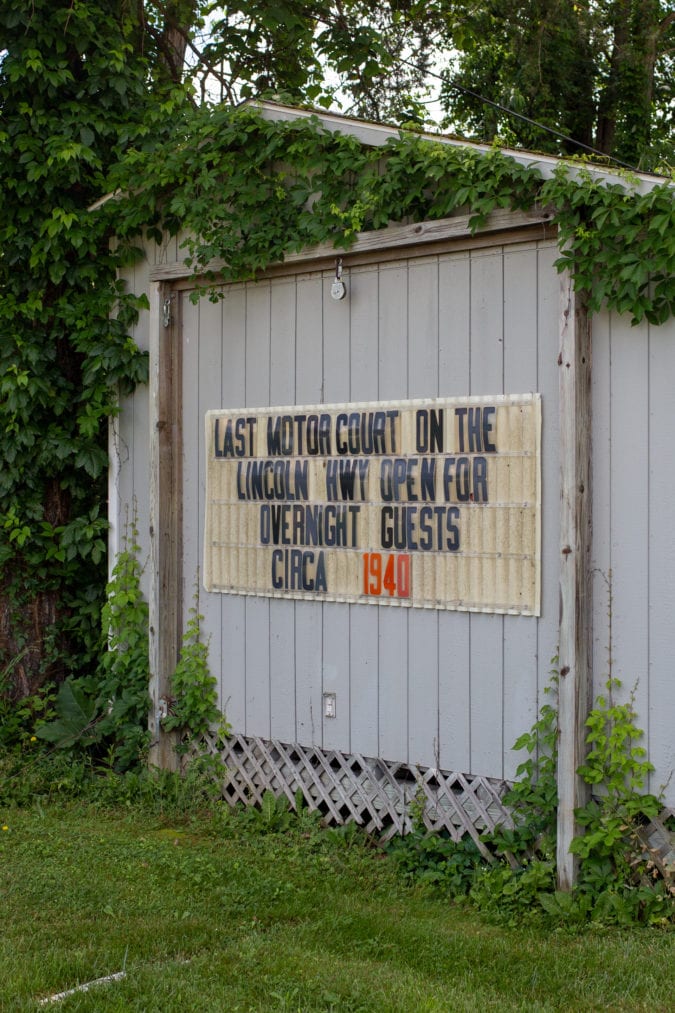
Ostrich dreams
The Altizers raised two daughters in the 800-square-foot central cottage—but neither has any interest in following in their parents’ footsteps. “Almost every day our oldest says, ‘Did you sell that place yet?’” Bob says. “If the right offer came along we’d take it. But it’s going to take a certain kind of individual to want to run this. It’s not going to make you rich. We’re selling a lifestyle. You meet all kinds of neat people and people come to you. You’re respected in the community. It’s not a job, it’s a lifestyle.”
Despite being uniquely poised to thrive within the constraints of the current pandemic, business has been slow at the Lincoln Motor Court since March. “Usually we have weekends booked out two months in advance but not now,” Debbie says. “We never closed or locked our doors, but our customers just stopped coming. We consider ourselves essential—if someone breaks down across the street and needs a place to spend the night, we’re essential to them.”
Although they’re in no hurry to find a buyer, the Altizers are preparing for their next chapter. They would love to move to their daughter’s farm in Virginia and raise Maine Coon cats—even if they admit that it sounds like what Debbie calls an “ostrich dream.” The term, family shorthand for those “things you talk about that you want to do but they just don’t pan out,” was coined after they looked into acquiring real ostriches for the field behind the motor court. They reconsidered only after realizing that guests might not appreciate being so close to what Bob says are essentially “big, mean chickens.”
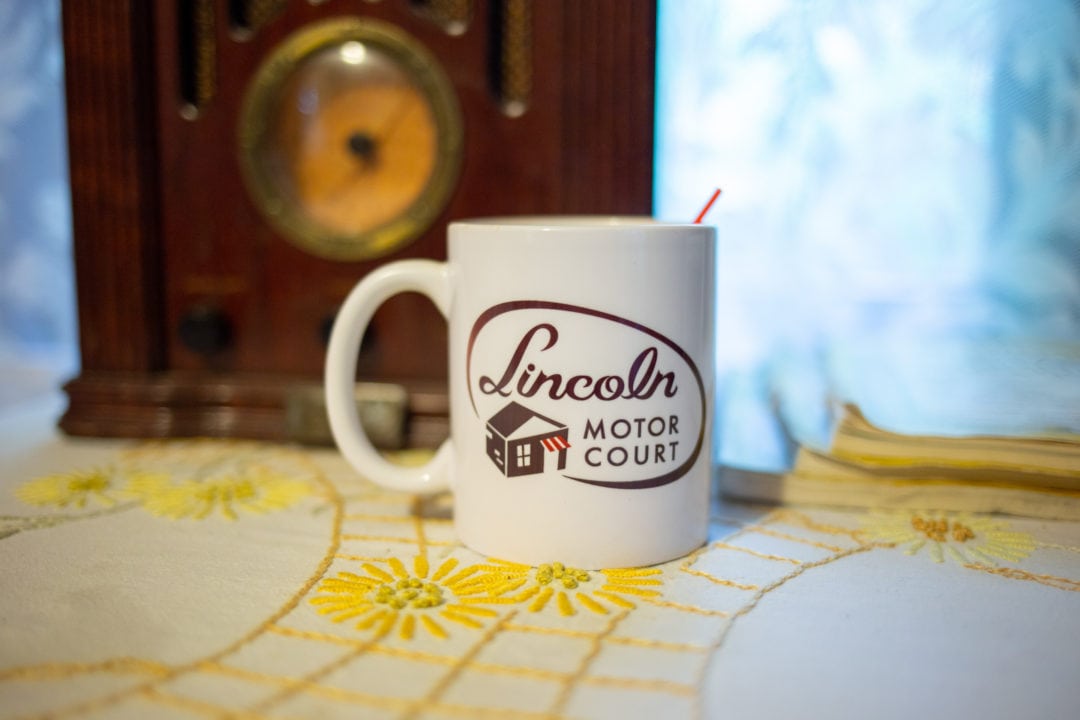
The Altizers may have somewhat impulsively entered the hospitality industry, but they’re clearly very good at it. Bob says that it’s not uncommon for people to drive several hundred miles out of their way just to stay overnight at the Lincoln Motor Court. “Most of our customers are repeats,” he says. “We’ve had it long enough to see three generations come back.”
Families have rented the entire motor court for celebrations, including a week-long recreation of the reality TV show Survivor. A Christmas-in-July-themed reunion featured blowup snowmen, festive lights, a pop-up drive-in theater with holiday movies, and trees and wreaths in every room. “They had a really good time,” Bob says. “That’s what makes the whole thing worthwhile. When people are smiling as they leave, I’m happy. I like to see people happy.”
“That’s our calling in life, I guess,” Debbie adds.

